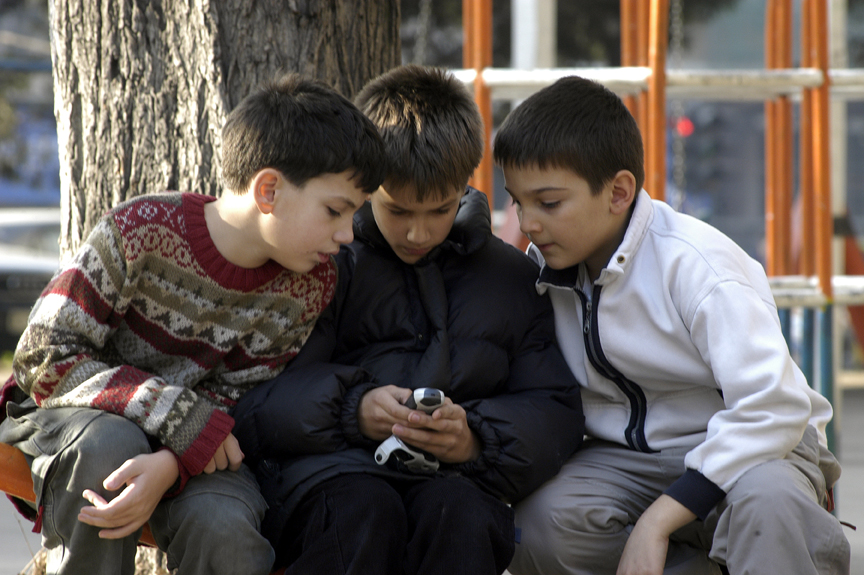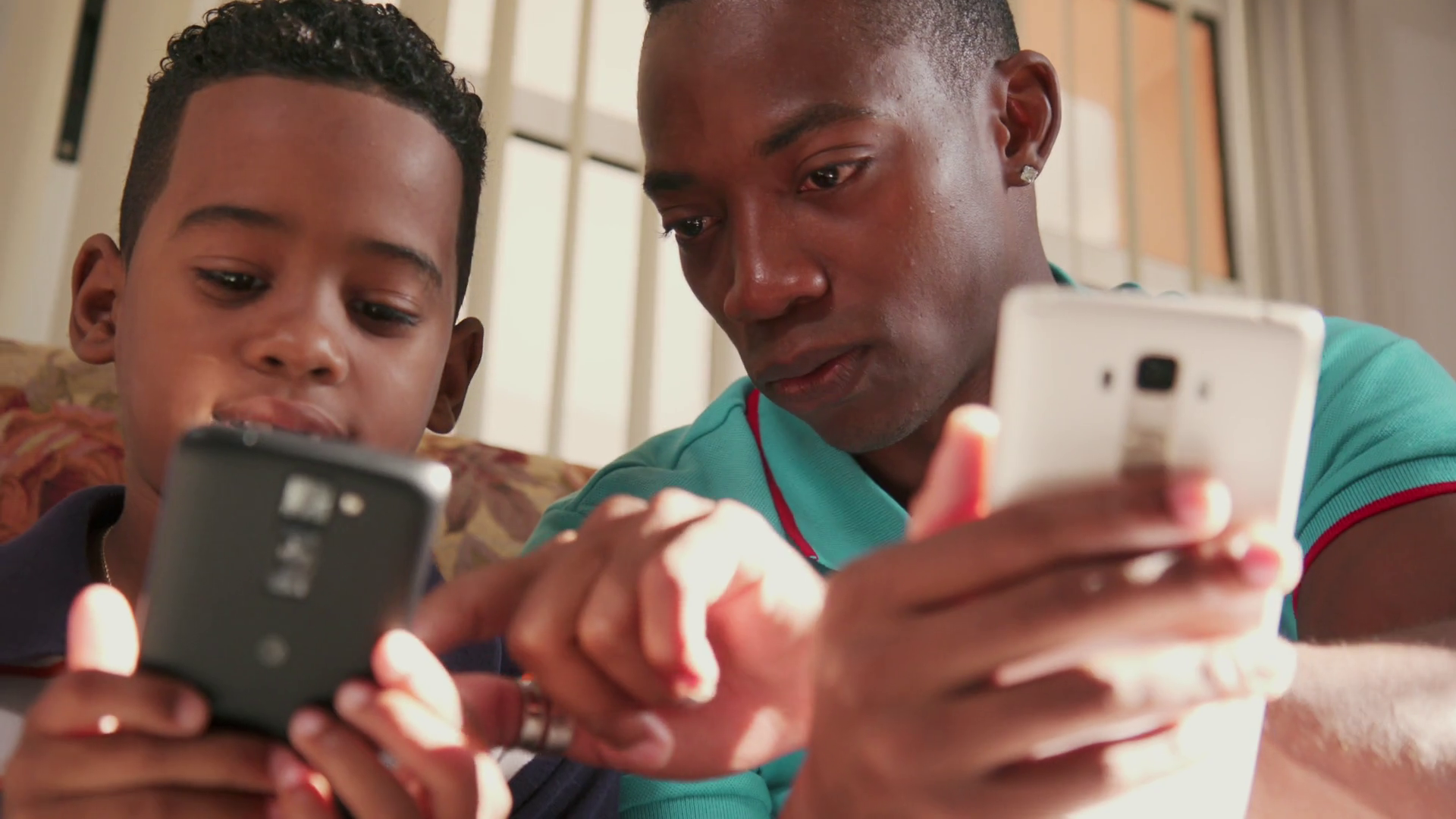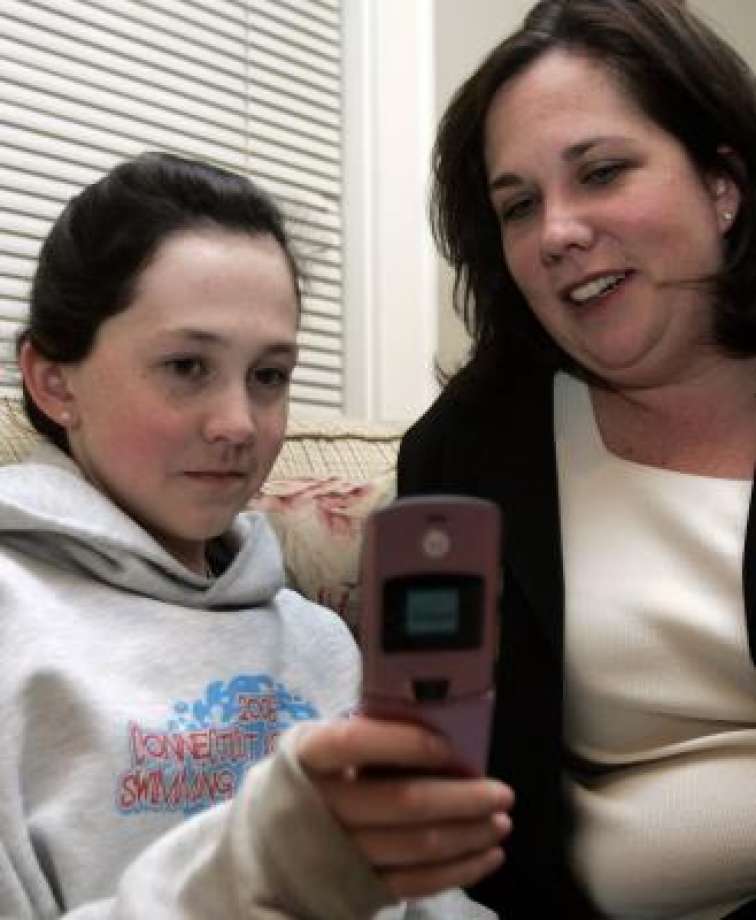Phone Safety For Kids
Let’s face it. A lot of what you (as a parent) worry about these days is stuff that didn’t even enter your parents minds to worry about for you!
AND a lot of what appears on the internet (your largest source of information these days) is superficial, one-size-fits-all, just-get-an-article-written, worthless fluff—if not downright fabrication or scam.
What are the rules you should enforce about cell phones for your family?
There is no shame in worrying, of course, as long as it doesn’t prevent anyone from actually living and enjoying life; which, alas and alack, is also too often actually happening these days—think: Helicopter Parents.
Phone Safety and Kids
What Actually Makes Sense
This article is NOT going to fuss with what is prompting parents to be so interventionally concerned about their children that nearly 24/7 worry becomes the answer (fear of loss or injury, obsessiveness with success, fear of failure, etc.) those are worthy topics for another article. Today, we need to talk about phone safety which means, largely, cell phones.
I liked the photo I chose to head the article although I confess I can’t quite make out the emotion on that toddlers face—anger, frustration, curiosity? Most likely, if it’s anything, it’s merely being pissed that the thing won’t fit in his/her mouth. Clearly, at two, that’s what it intends to do if it can just figure out how to do it.
Transpose that to a sixth-grader however and it’d be a whole different story, more something like: “this thing is SOOOOOO ancient! I can’t even get the internet or chat. How lame!”
Intergral Part of Life

Like it or not, this thing is here to stay. I read a comment on a blog recently where a parent dismissively pontificated: “just don’t let them on any internet until they’re through elementary. It worked great for my four.”
As much as it pains me to say, even that’s ancient thinking which won’t work anymore. Incredibly, they’re teaching computers and internet in elementary school now.
Placing all their grades, teacher conferences and school bulletins on “the web” should give all too clear warning to parents that all those within the building are computer sophisticated and intend that your child is not “left behind” in the endeavor either.
Homework is being given from computer sources doing away with expensive books and is being expected to be “handed in” that way too.
Other parents may have already given their children cell phones—so that they can be contacted at all times, ask and receive help with anything at anytime… even be tracked.
Ever Present, Ever Annoying…
Kids on the net don’t receive any “free pass” from the disgusting avarice we adults need to wade through every time we pick up our cell phones. In fact, the sites they frequent may even be worse for popups, shams and deceptions trying to get them to “press the button” to buy candy, sugar cereal and soda.
Elementary school-aged children begin their phone career being able to talk to mom and dad… and play games. The games, if they’re on the web, nearly always have pop-ups – for the junk food mentioned above – but sometimes they end up being for erectile dysfunction products and alcohol.
Most of the time kids can “X-out” of the popup clicking the little “x” up in the corner; but, sometimes they have to wait through the ad process before they can click.
Thing is, if you sit down and talk to a “digitally literate” child—which is the only real counter a parent has to keep their child safe—they are a whole lot more non-chalant about the nefarious crap than we as adults are. Over and over, when I ask them, a child merely gives me an annoyed “no-duh” look and says: “Just ‘x-out’ or go tell mom.”
The definition of a “digitally literate” child? One who is “Aware, conscious and willing to seek help,” is what I’ve heard Michael Rich, the pediatrician director of Media and Child Health at Boston Children’s Hospital, tell parents. And getting there should be the goal of every parent trying to keep them safe. Naively keeping them in the dark is NOT going to work!
…Ever Dangerous

A big annoyance to most parents is that even though there are ways to keep children safe by using throttles and permissions, it takes some amount of skill to do it—which means they have to learn technology too.
Why are popups and ads targeting children dangerous? Because kids aren’t able to discern persuasive or deceptive content. If an ad is on a game they like, to them it’s just part of the game. If they don’t have the product they are “unworthy or lacking” in some way.
If you actually buy the game, that often does away with popups BUT the more smarmy companies merely switch to “ad placements” where some junk-food merely appears on a billboard in the background or somewhere in the field of play where it will be sure to be noticed.
Hitting middle-school and high school ages, social media takes over and starts to squeeze games out of children’s phone usage; AND is the time where parents’ control becomes more treacherous to exert.
Snap…, Insta… and Yik… literally take over children’s lives in a more ubiquitous, pervasive, unforgiving and incessant way than our old-fashioned face-to-face, catty gossip sessions ever could.
I’m not really just guessing when I tell you that YOUR most obsessive worry about your child’s phone usage probably centers on predators and the possibility of one finding them off-line. Right?
Well, Larry Magrid, a guy who tracks statistics and legislation on such things (cause he’s co-director of ConnectSafely.org and founder of SafeKids.com), publishes that “the fear is unfounded.” “The data,” he says, “pretty much OVERWHELMINGLY shows the likelihood of this is low” and therefore makes more limitations on normal living than it has a right to.
The message that he, and Rich, and I (and in fact most all of us) want to convey is: “Don’t be so controlling that your teen can’t exert some independence online. Too many rules and a teen will go underground, hiding activities from you altogether.”
So, the most over-reaching, common-sense rule to keep them safe: “When you’re online, be nice, be kind; what goes around, comes around. Be aware of the environments you are in, who you are talking to and what their motives might be.”
And, the ONLY WAY TO TEACH THAT is by one-on-one time, giving them “what if” scenarios and examples of what “nice” and “kind” and “motives” are on the internet. And you need to begin talking about it as soon as they can understand speech and talk on the phone!
Common Sense Phone and Internet Solutions
What are the steps you take to make a child digitally literate and phone safe? Let’s start with seven – get these down and I’ll give you some more.
Be present in the digital space with your child

This’ll be good experience for when you do the puberty talk. Really! This cannot be put in a text message or abrogated to someone else. What do you think is meant by “being present?” You’ve got to actually sit with them and (at least) watch them play their games on the phone.
You need to actually experience what they’ll be going through specifically for the games they choose to play – no matter what the device, the activity OR the age.
Yes, you’ll be playing games with your 6 to 9 year olds. YOU CANNOT merely trust ratings or read the reviews. Actually LOOK AT your child and see how he/she reacts to what is gong on; and do it long enough to see how they handle pop-ups. Have them repeat back what you’ve explained to them to see that they actually understand. See how they cope when something that they should actually bring to you pops up.
And for your 10 and ups, the same thing goes. You’ll be surprised how often your cell-phone-safety talks and your puberty talks mesh, one informing the other.
What things are appropriate to post? What aren’t? What are the consequences? What is bullying and what do they do when they see it? What kind of things need to be brought to you so YOU can handle it without involving them?
Encourage Them Sharing Content With You

Show interest in, and give praise for, ANYTHING they choose to share with you from the internet. Nearly always a smart kid will “test the water” to see how you’re going to react by bringing you something innocuous that interests them first.
Everything you say will give validation to the judgement they’ve made. If it’s something good, you can ask them to tell you how they judge it to be and reinforce it.
If it’s something worrisome, don’t go ballistic or shut it down. Get them to express what/why it’s not good and what dangers it might reflect. Praise their bringing it to you and say: “let’s look at this together” which tells them that it’s the thing on the internet that’s bad, not them for seeing it.
Your reactions can give them the language to use to define it, how to express it to others and how to explain what they need to someone trying to help them.
Mentor Self-questioning and Reality-checking

Actually being with them in their cell-phone world gives you the opportunity to help them ask their own questions: “What is it about this that makes you uncomfortable?”
You also need to mentor them in what questions they should be asking themselves: “Why is someone asking you that?” “Why do they care about that?” “Why do they need to know that?” “What could they do with that information?”
And the big ones: “Do you think what they’re saying is really true?” “How could you verify that?” “What’s in it for them? How will they gain by knowing that about you?” “Is that mean spirited?” “Is that bullying?”
Brainstorm Solution Options

Raising a kid, especially a boy, into the teen years should have taught you by now that merely imposing ideas doesn’t get you very far. Blowing up and imposing rules, in fact, is likely to cause them merely to “go underground.”
Since you’ve already begun being present in their digital space, it’ll be easy to get them to brainstorm with you: “Ok, what options are there?” “How can we not let this ever happen again?” “How can you still _____ but keep ______ from happening?” “How can you do _______ and still make me convinced that you’re safe?”
The more a child (of any age) invests in the solution the more he/she will “own” the decision whether it be to “x-out,” disconnect or even disengage from a site they enjoy.
Safe and Un-Safe Personal Questions

You may think that your kids are well aware of what “safe” and “unsafe” questions look like after all that “stranger danger” talk you (and everyone else) has given them; but, advertisers are masters at manipulating the conversation and hiding their real motives in doing so.
Perhaps you think that “predators” are the thing they’ll be confronted with most? Think again. It’s nefarious advertisers and scammers that are rampant and who are far more likely to try and entrap your child.
“Chatting” on the web safely takes at least a little wariness and some discernment. A simple “what’s the weather like where you live” can lead very easily to “where do you live” or the more subtle “I can tell you live in Idaho” (which easily entraps one to issue a correction).
“What is your favorite video game?” is a WHOLE LOT different than “What is your home address?” or “When is your birthday?”
Kids need help from their parents in learning the various kinds of questions that are appropriate and not-appropriate on the web.
Plan Action Patterns

Once you’re convinced that they understand the rules and the possible issues that might evolve, what do you want them to do about it if they occur?
The next step is to run through several “what if” scenarios with them so they understand what you expect them to do if one of the “troubles” occur. In the whole, it’s best for them NOT to try and handle issues themselves especially if they’re pre-teen but even afterward it may be problematic.
“What do you do if you see a pop-up that is scary?” or “What if someone asks you for a password?” are things easily discussed with pre-teens.
But, what if someone (even one of their friends) sends your teen an unsolicited photo of someone largely unclothed or in a compromising situation? Even having such a photo on their phone is a chargeable offense in some jurisdictions. They need to understand that it’s the actions they take when first seeing the photos which will keep them from being legally involved.
As a minor, if they immediately take their phone to their parent so that you can decide on action, it puts them in the most safe situation with the law they can be in.
Define and Discuss Cyber-Bullying

Cattiness and bigotry have been catapulted into a dark-art form by the cell phone era. When you went to school, the bullies were easily identifiable and most often made to take responsibility for their actions.
Now days, the anonymity of the cowards is most often the rule; and, the damage exponentially more harmful and lasting.
The “I am a witness” movement attempts to sweep the majority of the “socially appropriate” kids into taking action against bigotry, arrogance and meanness whenever they see it.
Part of a parents instruction about cell phone safety is to not only protect the child about things that might be said about them; but, to also define cyberbullying in its many forms and to let them know the standards you expect of them.
You should instruct your child to come to you if he/she feels they are being bullied online. You can decide the best way to handle and report the behavior.

